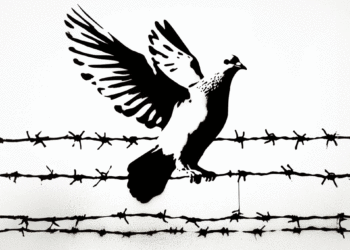Israel isn’t an occupier, since there was no state from which to take the disputed territories
By MOSHE GIT
When the Palestinian Authority and Israel sit down for “proximity talks,” the pressure is mounting on Israel to release territories that supposedly aren’t Israel’s, but rather “belong” to the Palestinians. It behooves us to examine the misconceptions that cause the world to condemn and lose patience with Israel.
About 2,000 years ago, after obliterating the Jewish entity in the Holy Land, the Roman conquerors renamed that territory Palestine. The Jews didn’t much care for that new name, but since Rome was the dominant power, imprinting its customs on the entire Mediterranean basin, the civilized world adopted the Roman nomenclature — including the name Palestine.
But unlike most countries of the world, where there is a mutual relationship between the name of the territory and the people living there — England and English or Spain and Spaniards, for example — Palestine remained the name of a territory only. Since the name was adopted, many groups of people, tribes and armies have passed through that area; some even settled there, but none acquired the territory’s name.
Thus, there was Palestine, but no Palestinians.
At the end of the 19th century, when Jews started to actively pursue their old dream of returning to their ancient homeland, the activity was verbally expressed by the aspiration to return to Palestine — not to Judea, not to Samaria, not to Israel — but to the territory referred to by its sanitized name: Palestine.
The famous Balfour Declaration, which was issued by the British government in 1917, stated that Palestine is the national home for the Jews. Soon thereafter, European anti-Semites, who wanted to rid their countries of Jews, urged the latter to immigrate to Palestine. Even Zionist leaders, such as Menachem Begin, who would later become Israel’s prime minister, called on Jews to immigrate to Palestine.
So innocuous was the use of the name Palestine as the land of the Jews that Zionist institutions established in the pre-state days as part of the Jewish revival, such as a bank and an airline, bore the name “Palestine” as part of its title. In some cases, this use of the word “Palestine” was even carried over after the establishment of the state of Israel.
Thus, until about 1950, no people were called Palestinians. At best, one could apply the term “Palestinian” to a person who was born in the territory called Palestine. By this token, a Jew who was born in Palestine, say in 1945, can more accurately be called a Palestinian than Yasser Arafat, the famous Palestinian leader, who was born in Cairo, Egypt.
In fact, until the time of the Six-Day War in 1967, one could talk about Palestinian Jews and Palestinian Arabs; but there was no nation of people called Palestinians, and certainly no state called Palestine.
The 1948 war ended in three states ruling the territories comprising Palestine: Israel, Jordan (the West Bank) and Egypt (the Gaza Strip). Israel won the West Bank and the Gaza Strip in the Six-Day War, which most would agree was a defensive war.
The claim is now made that no country should acquire the territory of another by the use of force. This principle is hardly being upheld, even in aggressive wars (e.g., China’s acquisition of Tibet, India’s of Goa, and Russia’s of the Kaliningrad region). But even if it were to be upheld, even in defensive wars, there is no country that has a legal claim to the West Bank or the Gaza Strip.
Israel didn’t acquire those territories by force from Palestine, nor was there such a state at the time. In 1967, Israel fought against Jordan and Egypt, and won the West Bank and Gaza from them. In their peace accord with Israel, Egypt and Jordan settled all their territorial differences with Israel.
Why should the Palestinian Arabs now have a superior claim to the West Bank than the Palestinian Jews? Why should they have any claim? That doesn’t mean that the Palestinian Arabs don’t deserve a state of their own; but accusing Israel as being the violator of international law, such as the Geneva Convention principles, has no foundation.
Israel isn’t an occupier and the West Bank isn’t an occupied territory, since Israel doesn’t occupy the territory of another state.
***
Moshe Git lives in Minnetonka.



















